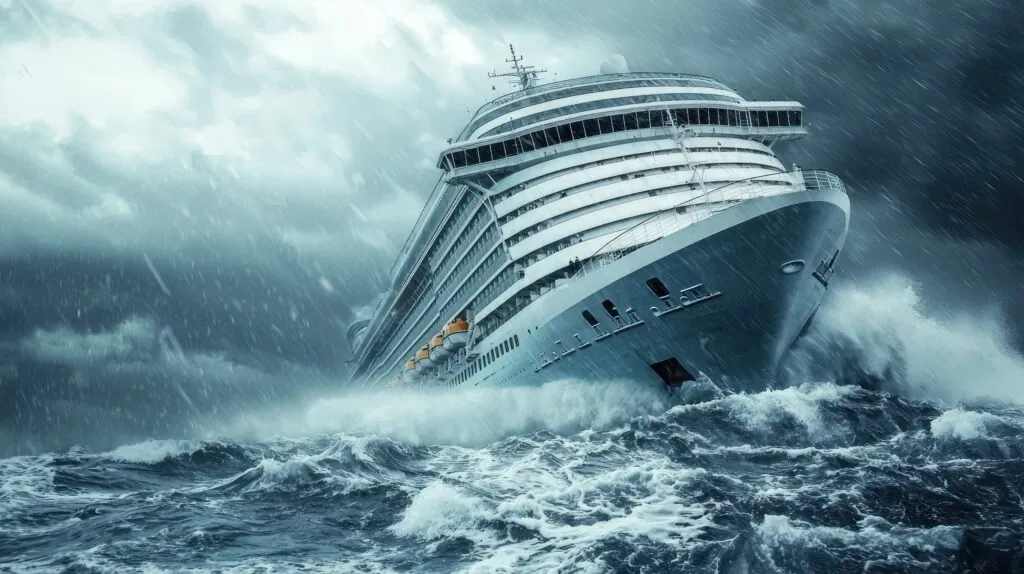Legal Consequences of Unsafe Cruise Ship Pool Areas
Cruise vacations are meant to be luxurious and carefree. Passengers look forward to relaxing days by the pool, exciting excursions, and endless entertainment. Unfortunately, accidents can and do happen—particularly around cruise ship pool areas. When passengers suffer injuries due to unsafe deck conditions, poor supervision, or faulty pool design, legal recourse may be available.

This guide explores everything you need to know about cruise ship pool injury lawsuits, including who may be held liable, what your legal rights are, and how to take action if you or a loved one has been harmed.
Common Causes of Cruise Ship Pool Injuries
Slippery Decks and Poor Maintenance
One of the leading causes of injuries on cruise ships occurs near the pool areas. Cruise ship pool decks are often wet, but that alone does not absolve cruise lines of responsibility. Under maritime law, operators are obligated to maintain a reasonably safe environment for passengers.
When pool decks are not properly maintained, passengers may slip and fall. Common contributing factors include:
- The absence of anti-slip materials on deck surfaces
- Poor drainage systems that allow water to accumulate
- Lack of warning signs indicating slippery areas
- Delayed cleaning of wet or hazardous zones
These preventable conditions can lead to fractures, head injuries, spinal injuries, and other serious trauma. Cruise lines may be found negligent if they fail to mitigate these dangers adequately.
Absence of Lifeguards and Supervision
Unlike public pools on land, most cruise ships do not have certified lifeguards on duty. Despite having pools accessible to hundreds or even thousands of passengers—including children—cruise lines often rely solely on posted warnings stating that guests swim at their own risk.
This lack of supervision can become a central issue in injury claims. For example, if a child or elderly passenger is injured or drowns due to insufficient oversight, the cruise line may be found liable for failing to provide adequate safety measures.
Cruise companies that promote family-friendly amenities yet fail to employ lifeguards or trained staff to monitor pool areas may be seen as misleading and legally negligent.
Poor or Faulty Pool Design
Design defects in and around cruise ship pools also lead to passenger injuries. These design flaws may not always be obvious but can include:
- Sharp, broken, or uneven tiles
- Railings that are improperly secured or absent altogether
- Pool edges or stairs with insufficient grip or visibility
- Lighting that makes navigation difficult in low-visibility conditions
- Emergency equipment (e.g., life rings or poles) that are missing or inaccessible
Poor design can make even a small misstep catastrophic. In many cases, the fault lies with the cruise line, the shipbuilder, or the third-party contractors responsible for the design and construction of the pool area.
Legal Liability: Who’s Responsible for Pool Injuries?
Cruise Line Obligations Under Maritime Law
Cruise lines operate under maritime law, a unique legal framework that imposes a duty of “reasonable care under the circumstances.” This means that cruise operators must take proactive measures to protect passengers from foreseeable harm.
If a passenger is injured due to slippery conditions, missing safety equipment, or inadequate staff response, the cruise line may be found legally responsible. This applies whether the ship is docked or at sea and often even if the ship is in international waters.
Passengers may be eligible for compensation if the injury occurred as a direct result of the cruise line’s failure to meet reasonable safety standards.
Proving Negligence in a Cruise Pool Injury
To succeed in a personal injury lawsuit, the injured party must typically prove four legal elements:
- Duty – The cruise line owed a duty of care to protect the passenger.
- Breach – That duty was breached through action or inaction.
- Causation – The breach directly led to the injury.
- Damages – The injury resulted in actual financial or emotional losses.
Evidence such as photographs, maintenance logs, witness statements, medical reports, and surveillance footage can be instrumental in demonstrating these elements.
Third-Party Contractor Liability
Sometimes the pool area may have been built or maintained by a third-party company. If a third party’s negligence contributed to the injury—such as using defective materials or installing equipment improperly—then that contractor may also be held liable.
In such cases, lawsuits may involve multiple defendants, including the cruise line and external vendors or designers.
Your Rights as an Injured Cruise Passenger
Filing a Personal Injury Claim
If you are injured on a cruise ship, especially in or near a pool area, you have the right to file a personal injury claim. These claims can cover a variety of damages, including:
- Emergency and long-term medical expenses
- Loss of income or earning potential
- Rehabilitation or physical therapy
- Pain and suffering
- Emotional distress and mental trauma
It’s critical to act swiftly. Cruise ticket contracts often contain limitations on the time frame in which you can file a claim. In many cases, passengers must notify the cruise line of their intention to pursue legal action within six months and file the actual lawsuit within one year.
What Damages Can You Recover?
Depending on the circumstances, a successful injury claim may result in:
- Economic damages: This includes reimbursement for tangible expenses such as hospital bills, surgery costs, medications, and lost wages.
- Non-economic damages: These are awarded for pain, suffering, trauma, and loss of enjoyment of life.
- Punitive damages: In rare cases where the cruise line’s actions were especially reckless, courts may award additional damages to punish the defendant and deter future misconduct.
How to File a Cruise Ship Pool Injury Lawsuit
Immediate Steps to Take
If you or someone you care about is injured in or near a cruise ship pool, take the following steps as soon as possible:
- Seek medical care from onboard staff and follow up with an independent physician after returning home.
- Take photographs and videos of the scene, including the injury and any unsafe conditions.
- Collect contact information from any witnesses.
- Report the injury to the cruise ship’s guest services department and request a written incident report.
- Contact an experienced maritime personal injury attorney to evaluate your case.
Gather Crucial Evidence
Evidence is key in building a strong case. You should retain:
- Photographic and video documentation
- Written medical records from shipboard and onshore healthcare providers
- Witness statements
- Copies of your cruise ticket and any waivers or contracts
- Maintenance logs or cleaning schedules, if available
The more documentation you provide, the better your chances of proving the cruise line’s negligence.
Work With a Maritime Injury Attorney
Cruise injury lawsuits are governed by complex rules, often involving international law and corporate entities based outside the United States. Working with a maritime personal injury lawyer gives you access to:
- Knowledge of cruise line liability statutes and regulations
- Experience with cruise contracts and venue/jurisdiction clauses
- Strategic negotiation with cruise insurers
- Legal resources to file suit before statutory deadlines expire
These attorneys often work on a contingency fee basis, meaning you don’t pay unless they win your case.
Real-World Case Examples
Child Drowning on Cruise Ship
In a widely reported case, a family successfully sued a cruise line after their child drowned in an unsupervised pool. The court found that the cruise line’s failure to provide adequate safety measures—including no lifeguard, missing signage, and slow response—constituted gross negligence. The family received a significant financial settlement.
Slip and Fall Near Pool Railing
An elderly passenger suffered a fractured hip after slipping on an unmarked wet surface near a poolside railing. The deck lacked any non-slip coating, and warning signs were missing. With the help of a maritime attorney, the injured passenger won compensation for medical bills, pain, and emotional distress.
Frequently Asked Questions
Are cruise lines legally required to have lifeguards at their pools?
No, most cruise lines are not legally obligated to provide lifeguards onboard, even in areas that see high traffic from children and elderly passengers. However, the absence of lifeguards can still play a critical role in determining whether a cruise line was negligent. If the lack of supervision contributed to an injury or drowning, that factor may strengthen your legal claim.
Can I sue the cruise line if I slipped and fell on a wet pool deck?
Yes, you may have a valid personal injury claim if your slip and fall was caused by an unsafe condition that the cruise line failed to address. Maritime law holds cruise operators to a duty of reasonable care. If there were no warning signs, the surface was improperly maintained, or there were known issues with the deck’s safety, you can likely pursue legal action.
What legal rights do I have after being injured near a cruise ship pool?
You have the right to file a personal injury lawsuit if your injury was the result of the cruise line’s negligence. This includes the right to seek compensation for medical bills, emotional distress, lost income, and other damages. Maritime law gives you protections as a passenger, but the time to act is limited, so it’s important to consult with a lawyer promptly.
How long do I have to file a lawsuit after a cruise pool injury?
Most cruise contracts significantly limit the amount of time you have to take legal action. Typically, you must notify the cruise line in writing within six months of the incident and file a lawsuit within one year. These deadlines are strict and usually enforced by courts, so it’s crucial to review your cruise ticket contract and speak with an attorney as soon as possible.
What if my child was injured in a cruise ship pool—can I still sue?
Yes, if your child was injured or drowned in or near a cruise ship pool, you absolutely have the right to file a lawsuit on their behalf. Courts tend to treat child injury cases with heightened seriousness, particularly if the cruise line failed to provide proper safety measures. Settlements in these cases may be higher, reflecting the long-term impact of the injury and the emotional distress involved.
Final Thoughts: Know Your Rights, Protect Your Future
Injuries aboard cruise ships—especially those near pools—can have lasting impacts. While cruise companies often work quickly to minimize liability, passengers have the legal right to seek justice when unsafe conditions or negligence result in harm.
Whether you’ve experienced a minor slip or a devastating family tragedy, understanding your legal rights is the first step toward recovery.
Contact The Cruise Injury Law Firm Today
Cruise lines have legal teams working on their side. You should too. If you or a loved one has been injured in or around a cruise ship pool, contact The Cruise Injury Law Firm today for a free consultation.
Get the legal support you need to pursue compensation, protect your future, and hold negligent cruise lines accountable.






